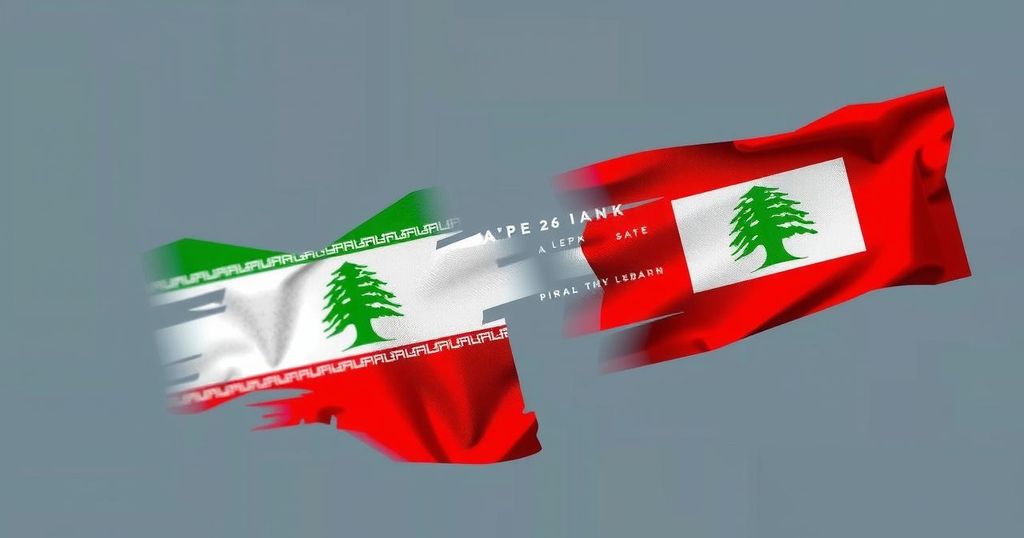Iran is reinforcing its support for Hezbollah amid discussions of a ceasefire with Israel. Iranian officials have praised the resistance against Israel, even while covertly supplying weapons to Hezbollah. The geopolitical landscape is shifting, and Iran faces key decisions regarding its military strategy and responses to Israeli actions during the prospective ceasefire period.
Iranian Foreign Minister Abbas Araghchi has expressed support for the so-called “resistance” in Lebanon, coinciding with increasing discussions about a proposed ceasefire between Israel and Hezbollah. This endorsement was articulated during a phone call with an Iranian diplomat, wherein it was emphasized that Iran advocates for the Lebanese populace and government. In a tangible gesture of its support, Iran dispatched a medical mission to Lebanon this week, highlighting its commitment to the region amidst ongoing clandestine arms shipments to Hezbollah.
During the conversation, Araghchi commended the steadfastness of the Lebanese people in their recent confrontations with Israel, recognizing their resolve against the Israeli Defense Forces. Reports suggest that Iran is keen on fortifying the interconnectedness between Hezbollah and other militant factions, particularly following the Hamas-led offensive on October 7, which arguably compelled Hezbollah into a conflict it may not have willingly initiated.
The situation escalated after Hezbollah attempted to assert a right to engage Israel militarily, compounded by Israeli strikes on its positions in southern Lebanon. As geopolitical dynamics shifted, Israel has taken assertive actions to reclaim areas along its northern borders, including a marked ground operation targeting Hezbollah strongholds, which has shifted the narrative towards a potential ceasefire.
Amidst these developments, Iran also faces its own critical decision point. The culmination of events may lead Iran to either expedite its pursuit of nuclear armament or leverage its proxy forces across Iraq and Syria to launch retaliatory measures against Israel. The looming 60-day ceasefire timeframe is particularly significant as it aligns with the transition of power in the United States, potentially influencing Iran’s strategic calculations in the coming weeks.
The ongoing tensions between Israel and Hezbollah reflect a complex web of regional politics, heavily influenced by Iranian support for militant groups in Lebanon. Iran’s backing of the resistance fighters is a longstanding aspect of its foreign policy, aimed at countering Israeli influence in the region. Following Hamas’ attack on Israel, Hezbollah’s involvement raised questions about its preparedness and strategic decisions, particularly as it relates to ongoing hostilities and potential ceasefire efforts. The dynamics in Lebanon are symptomatic of broader regional power struggles involving Iran and its proxies, illustrating the intersection of military engagements and political maneuvers.
In conclusion, the potential for a ceasefire between Israel and Hezbollah could significantly impact Iran’s strategic decisions in the region. Iran’s support for Lebanese resistance signals its commitment to regional influence, while the ceasefire creates a critical juncture for Iran to either intensify its military capabilities or engage its proxies in escalated conflict against Israel. These developments warrant close observation in the context of the upcoming U.S. political transition, which may further alter the already volatile dynamics in the Middle East.
Original Source: www.jpost.com






